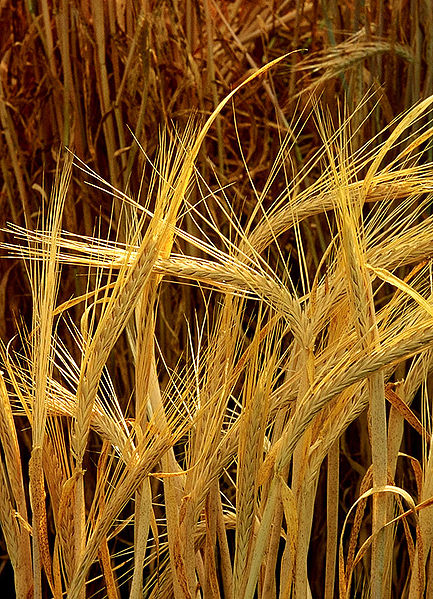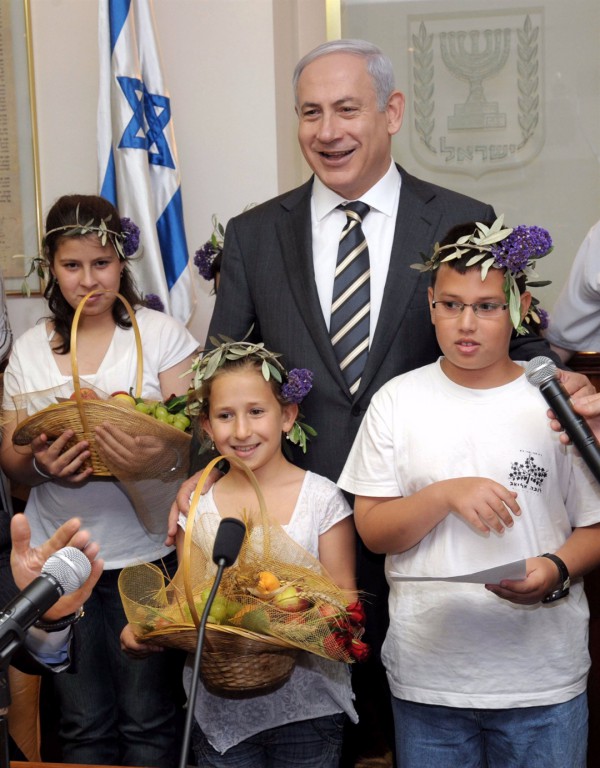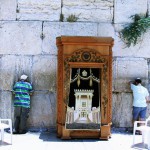“Count off seven weeks [shavuot] from the time you begin to put the sickle to the standing grain.” (Deuteronomy 16:9)
We are currently in a very special season that leads up to Shavuot (Feast of Weeks, also called Pentecost).
After the appointed festivals of Pesach (Passover) and Bikkurim (First Fruits), which occurred on the second day of Passover, we entered into a period called Sefirat HaOmer, or Counting the Omer (Sheaf).
What Is the Omer and Why Is It Counted?
“From the day after the Sabbath, the day you brought the sheaf [omer] of the wave offering, count off seven full weeks [Sabbaths].” (Leviticus 23:15)
An Omer is a unit of measure that refers to sheaves of a harvested crop.
In ancient times, the Jewish People brought the Omer of barley to the Temple as an offering on the second day of Passover.
The Torah commands the Jewish People to count seven weeks (49 days) from the time of this wave offering until the evening of the festival of Shavuot. Shavuot occurs on the fiftieth day.
The number 50 is associated with the Year of Jubilee and, therefore, represents freedom and liberation (Leviticus 25:10)—a time when the shofar (ram’s horn) would sound and all slaves would go free and all debts would be canceled.
Since the number seven represents wholeness, perfection and completion, the seven weeks are also significant.
For example, in six days God created the universe. But on the seventh day, His work was completed and He rested.
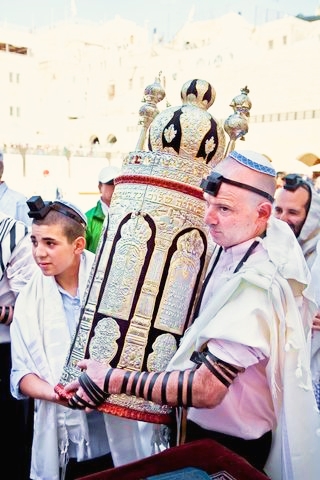
Carrying the Torah scroll, which is protected by an ornate silver case, at the Western (Wailing) Wall.
Therefore, the counting of the Omer for seven weeks of seven days (49 days) represents the expectation of completion and the age of a universal “rest,” which will occur at the coming of Messiah and the Messianic age.
This counting links Passover, which commemorates the Exodus, with Shavuot, which commemorates the giving of the Law.
According to Jewish tradition, the Israelites were told when they left Egypt that they would receive the Torah in seven weeks.
Each day was counted with eager expectation.
Counting the Omer today reminds the Jewish People that their redemption from slavery in Egypt was not complete until they received the Torah.
Similarly, we are to be counting the days in blessed anticipation until Yeshua (Jesus) returns and establishes His Kingdom of righteousness, peace, and justice on this earth.
Today, these 49 days are counted aloud every evening after sundown. Before counting, a special blessing is recited:
“Blessed are You, Lord our God, Ruler of the Universe, who has sanctified us with His commandments, and commanded us concerning counting the Omer.”
“Today is 9 days, which is one week and two days of the Omer.”
Although Jews no longer bring their Omer offering to the Temple, the Counting of the Omer is still observed as a time to reflect on one’s character before Shavuot, which in Jewish tradition is regarded as the time of the giving of the Torah on Mount Sinai.
Counting the Omer Traditions
The tone of the Counting of the Omer is customarily not joyous, but one of somber introspection.
Traditionally, each week of counting is dedicated to a spiritual quality that we aspire to attain in greater measure of excellence. (Aish.com)
These qualities are
- Chesed ― Loving-kindness, benevolence
- Gevurah ― Justice, discipline, strength, restraint, awe
- Tiferet ― Harmony, compassion, balance, beauty
- Netzach ― Endurance, fortitude, ambition
- Hod ― Humility, splendor
- Yesod ― Foundation, bonding (to God)
- Malchut ― Nobility, sovereignty, leadership
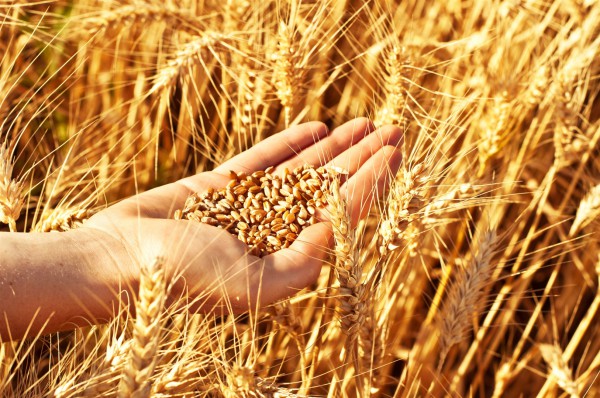
Count off seven weeks from the time you begin to put the sickle to the standing grain. Deuteronomy 16:9
The Omer and the Ruach HaKodesh (Holy Spirit)
As we continue to count the Omer, we draw closer to the end of this 49-day period that culminates in the 50th day, Chag HaShavuot (Feast of Weeks). (Exodus 34:22)
Because this holiday occurred on the 50th day after Passover, Hellenist Jews called it Pentecost, from pente, meaning 50 in Greek.
On the 50th day, a new grain offering is to be presented to the Lord and a sacred assembly held to celebrate the Feast of Shavuot (Weeks/Pentecost).
“Count off fifty days up to the day after the seventh Sabbath, and then present an offering of new grain to the LORD.” (Leviticus 23:15-16)
These 50 days remind us that 50 days after God physically freed the Israelites from bondage in Egypt, He spiritually freed them from idolatry and immorality by giving them the law on Mount Sinai.
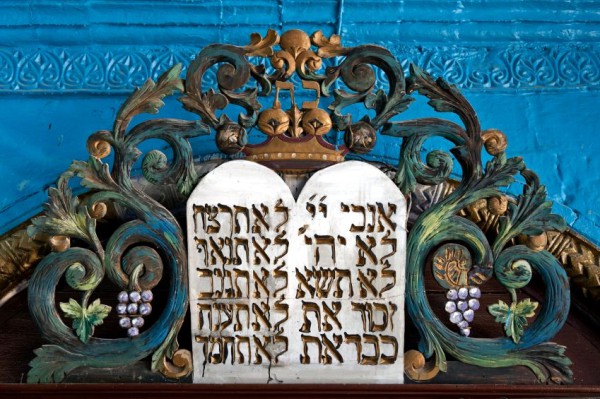
This ornate detailing of a vine and the Ten Commandments graces an Ark in which the Torah scrolls are stored.
The significance of the feast, though, did not end on Mount Sinai.
Counting the Omer pointed to the 50 days from the day that Yeshua (Jesus) freed us from sin with His blood to the day that He sent the promised Ruach HaKodesh (Holy Spirit) to fill the Apostles and others who were waiting in Jerusalem. (Acts 2:1–31)
“When the day of Shavuot [Pentecost] came, they were all together in one place. Suddenly a sound like the blowing of a violent wind came from heaven and filled the whole house where they were sitting.… All of them were filled with the Holy Spirit and began to speak in other tongues as the Spirit enabled them.” (Acts 2:1–4)
Receiving the Ruach HaKodesh (Holy Spirit) is our seal of freedom forever:
“No one can enter the kingdom of God unless they are born of water and the Spirit.” (John 3:5)




